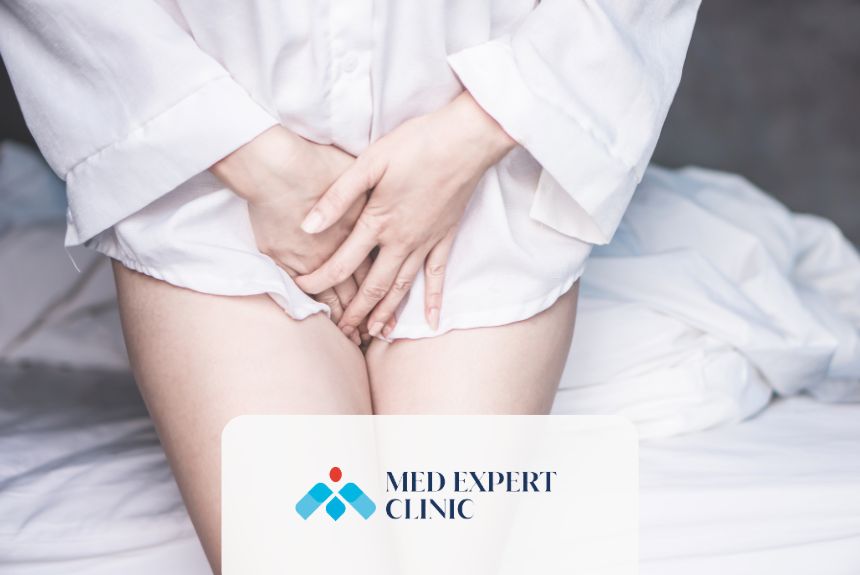Urinary incontinence is a common condition in women, often occurring after childbirth, during menopause, or as a result of weakened pelvic floor muscles. In addition to physical discomfort, it can negatively affect social life and self-confidence. However, with accurate diagnosis and an individualised treatment plan, this condition can be effectively managed and, in many cases, completely resolved.
Types of Urinary Incontinence
1. Stress Urinary Incontinence (SUI)
Leakage occurs during activities that increase intra-abdominal pressure, such as coughing, sneezing, laughing, or lifting heavy objects. This is usually due to weakened pelvic floor support.
2. Urge Urinary Incontinence (UUI / Overactive Bladder)
A sudden, strong urge to urinate followed by involuntary leakage before reaching the toilet.
3. Mixed Urinary Incontinence
A combination of both stress and urge incontinence symptoms.
Diagnostic Process
An accurate diagnosis is essential for a successful outcome. During the initial assessment, the patient’s medical history is taken, a gynaecological examination is performed, and a urinalysis is carried out. If necessary, advanced tests such as urodynamic studies may be recommended.
Pre-Treatment Online Consultation
For patients planning to travel from the UK to Türkiye, we offer a significant convenience:
A detailed pre-treatment consultation with our professors can be conducted via Zoom.
During this meeting, symptoms, medical history, and treatment options are thoroughly discussed.
This allows the patient to have a clear treatment plan before travelling to Istanbul.
Non-Surgical Treatment Options
Pelvic Floor Muscle Training (Kegel Exercises): When performed regularly and correctly, these exercises strengthen pelvic floor muscles and are effective in stress urinary incontinence. Typically recommended for at least three months.
Bladder Training: Particularly beneficial for urge and mixed incontinence; involves gradually increasing the interval between voids.
Lifestyle Modifications: Reducing caffeine intake, maintaining fluid balance, managing body weight, and preventing constipation support the treatment process.
Pharmacological Treatments
For urge urinary incontinence, medications that reduce overactivity of the bladder muscles may be prescribed. The choice of medication depends on the patient’s individual condition and diagnostic findings.
Surgical Options and Modern Hospital Facilities
In cases where non-surgical methods are insufficient, surgical options are considered. One of the most commonly performed procedures is the mid-urethral sling surgery.
The operation typically takes around 30 minutes.
It is performed in modern, fully equipped private hospitals.
Patients usually stay one night in hospital and return to daily activities shortly after.
Treatment Completed Within One Week
For patients travelling from the UK, the process is generally as follows:
- Pre-Consultation: Detailed assessment with a professor via Zoom.
- Arrival in Istanbul: Pre-operative examination and necessary preparations.
- Surgery / Treatment: The procedure, lasting approximately 30 minutes, is performed in a modern hospital setting.
- Recovery: The recovery process is usually completed within one week.
- Return Home: Patients can typically return to their home country within 5 – 6 days with the treatment completed.
Frequently Asked Questions
How long does the treatment take in Istanbul?
In surgical cases, the operation takes approximately 30 minutes, requires a one-night hospital stay, and full recovery is usually achieved within one week.
Can I come without a pre-consultation?
It is not recommended. Conducting a Zoom pre-consultation ensures the treatment plan is clear, allowing the process in Istanbul to proceed more efficiently.
Is surgery necessary for all patients?
No. Mild to moderate cases can often be successfully managed with non-surgical methods.
Conclusion
Female urinary incontinence is a treatable condition with high success rates when accurately diagnosed and managed with a personalised treatment plan. At MedExpert Clinic, we provide patients from the UK with a modern hospital environment and a comfortable treatment process completed in a short time.

